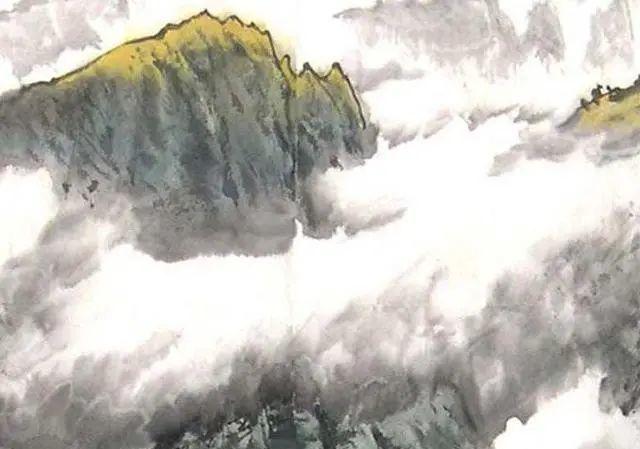Poetry hunting every day
Pay attention to the reading dogs
Wushan Yunyu, this idiom must have been heard by everyone, which means that men and women are entertained in love, and the unspeakable things are said in a euphemistic and subtle way. This idiom actually originates from the two texts of song yu of the Chu state during the Warring States period, "Gao Tang Fu" and "Goddess Fu". The "Gao Tang Fu" records that the king of Chuhuai, You Gao Tang, met the goddess in his dream to introduce herself to the pillow, and the goddess claimed that Dan was the morning cloud, and twilight was the rain. Therefore, later generations used Wushan Yunyu to describe the matter of bed. Later, King Huai of Chu's son, King Xiang of Chu, also followed his father's example of traveling to Wushan with Song Yu and ordered Song Yu to be a gift, so he had the "Divine Daughter Endowment", which also described the same thing that the King of Chuxiang dreamed of meeting a goddess and entertaining her.
Although the events described in Song Yu's two essays are somewhat indescribable, Song Yu's rhetoric is gorgeous, and the stories contained therein are mysterious and colorful, so they have a great influence on the history of literature. Even many poems use allusions to the rain in the clouds. For example, the Song Ci word plate "Wushan A Piece of Cloud" is used in this way; as Bai Juyi's poem "When there are not many dreams in spring, go as if there is nowhere to find the clouds", He Zhu's "Walking in the rain and clouds, not flowers and non-fog, for whom to come and go back" and so on!

As a result, Song Yu became the originator of creating this literary allusion, and was repeatedly written into poetry. However, there was a lyricist in the Southern Song Dynasty who could not bear to read it, and even wrote a poem to scold Song Yu for the absurdity of the text written by Song Yu, and even stood on the moral high ground to scold Song Yu shamelessly. And look at the following song "Nian Nu Jiao":
"
Nian Nu Jiao
Southern Song Dynasty Cao Guan
Prologue: Song Yu's "Gao Tang Fu" recounts the encounter of the king of ChuHuai with a goddess, which was believed by later generations. Foolishness thinks otherwise, because of the "Niannu Bridge", washes away the slander of thousands of years, in order to dispel the confusion of customs.
The Three Gorges of Shuchuan have the wonders of Gao Tang and the seclusion of the gods. The boulders are near the water, and the waves are roaring. Twelve Spirit Peaks, Cloud Steps, Moon Land, there are Witch Mountain Girls. Whiskers change, balconies towards the twilight clouds and rain.
Can you laugh at Chu Guohuaixiang, divide into strict father and son, and be reckless? Illusions are fascinating, should feel the charm, false words and encounters. How can a woman be slightly slandered and slandered by a woman who seeks a matchmaker and is pure and straight? The evil of Feng Jun, despise Song Yu's words!
This poem is very clear in the word order, and the lyricist does not approve of the things described in Song Yu's "Gao Tang Fu", so he wrote this "Nian Nu Jiao" to restore the innocence of the goddess and eliminate the misunderstanding of the world. The whole poem is from the moral high ground to criticize Song Yu for slandering the goddess and greeting the monarch.
Looking at this poem "Nian Nu Jiao", Shang Yan wrote the scene of Wushan Mountain where the goddess lived, mostly using the words in Song Yu's "Gao Tang Fu", which was extremely gorgeous. And the focus is on the high talk in xiaxia: "Can laugh at the Chu state Huaixiang, divided into strict father and son, reckless? What was laughed at was that the King of Chu Huai and the King of Chu Xiang were originally father and son, how could they be with the same goddess "Yun Yu"! The next sentence said his point of view: Probably king Huai and king Xiang were confused and confused by the ghosts of the mountains and forests, and said that they had met the goddess!
Then he further defended the goddess: "If a woman is ashamed to seek a matchmaker, and if the god is pure and straight, how can she be lightly slandered?" ", ancient women are ashamed to ask for a matchmaker to marry themselves, not to mention the innocence of the goddess, how can they introduce themselves to the pillow, Song Yuzhi said is simply slanderous! The poet defended the goddess, criticized Song Yu, and threw out a heavy hammer, "The evil of fengjun, despise Song Yu's word endowment"! Referring to the evil customs of Song Yufeng to welcome the monarch, literary gifts such as "Gao Tang Fu" and "Divine Daughter Fu" are really despicable!
This poem "Nian Nu Jiao" defends the goddess, which seems reasonable and well-founded, but in fact it is just a pedantic theory of sour rot taoists, interpreting Song Yuwenfu according to the standards of a moralist, which is quite sensational. More importantly, the author of this song, Cao Guan, is himself very "immoral"!
Cao Guan was a Southern Song Dynasty poet, and he had another identity, that is, one of Qin Jun's ten disciples, the teacher of Qin Jun's grandson, who had helped Qin Juniper to cheat in the jinshi. Later, after Qin Jun's death, the imperial court discussed Qin Juniper's title, and Cao Guan actually called Qin Juniper "Guangbi Holy Lord, Shao kai Zhongxing, An Zongshe in the midst of the xia, restored to peace after Pandang, moral predisposition, Xunye crown ancient and modern"! It's shameless! Cao Guan, standing on the moral level in this song "Nian Nu Jiao", scolded Song Yu for "the evil of Feng Jun", but he sang praises for Qin Juniper, and he was not shameless!